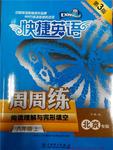题目内容
Why do young adult children become independent so much later than they did in 1970,when the average age of independent living was ? Why have reduced class sizes and increased per-pupil expenditures (花销)not 36 higher academic achievement levels? Why is the mental health of today’s kids so poor when with that of children in the 1960s and before? Why do today’s become defensive when told by teachers that their children have misbehaved in school?
The answer in two words: parental . Those two words best summarize the between “old” child raising and new, post-1960s parenting. Then, the overall philosophy was that parents were not to be involved with their kids. They were available crisis, but they stood a (an) distance from their kids and allowed them to experience the benefits of the trial-and-error process. It was the child’s , back then, to keep his or her parents from getting involved. That was children learned to be responsible and determined.
Today’s parents help their kids with almost everything. These are parents who are when it comes to an understanding of their purpose in their kids’ lives. Their involvement leads them to personalize everything that happens to their kids; , the defensiveness. But given that schools and mental health professionals have been pushing parent involvement for nearly four decades, the confusion and defensiveness are .
University researchers analyzed three decades of data relating to parent participation in children’s academics. Their conclusions what I’ve been saying since the 1980s: parental help with homework a child’s academic achievement and is not reflected on standardized tests.
Parents who manage a child’s social life interfere with the of good social skills. Parents who manage a child’s after-school activities grow kids who don’t know how to their own free time. Parents who get involved in their kids, with peers grow kids who don’t know how to avoid much less trouble.
These kids have anxieties and fears of all sorts and don’t want to leave their . And their parents, when the time comes, don’t know how to being parents. You can imagine what will become of their fu ture.
1.A. counted on B. resulted in C. touched on D. taken in
2.A. associated B. linked C. compared D. matched
3.A. parents B. adolescents C. psychologists D. youths
4.A. assistance B. protection C. involvement D. preference
5.A. differences B. similarities C. choices D. relations
6.A. slightly B. passively C. highly D. fairly
7.A. in case of B. in spite of C. in view of D. in fear of
8.A. equal B. safe C. long D. short
9.A. fault B. turn C. job D. attitude
10.A. when B. how C. why D. what
11.A. confused B. disappointed C. amazed D. satisfied
12.A. however B. still C. yet D. thus
13.A. unreasonable B. changeable C. understandable D. avoidable
14.A. confirmed B. convinced C. realized D. reflected
15.A. decides B. lowers C. helps D. stimulates
16.A. appearance B. performance C. establishment D. development
17.A. value B. devote C. fill D. save
18.A. communication B. conflicts C. cooperation D. competitions
19.A. start B. ignore C. consider D. stop
20.A. home B. school C. career D. profession
 快捷英语周周练系列答案
快捷英语周周练系列答案
